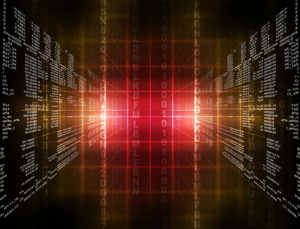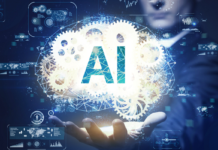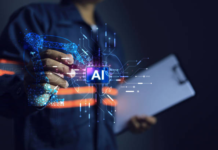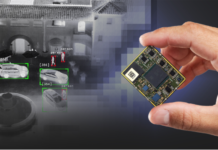
NITI Aayog’s roadmap for the national Artificial Intelligence (AI) program has given wings to the technology revolution in India. AI offers opportunities to complement human intelligence and enrich the way people live and work. India is recognising the potential of AI to change economies. India’s approach to implementation of AI has to be guided by optimisation of social goods, rather than maximisation of topline growth.
Let us explore the impact or changes AI has made on several sectors in India.
Role of AI in Indian Farming
Agriculture is a vibrant part of the Indian economy. AI has entered the Indian agriculture sector though lately but progressively.
AI together with the Internet of Things and sensor technology can be the great enabler of precision agriculture. AI can also play a critical role along with remote sensing technology in the wide-scale implementation of Climate-Smart Agriculture.
Some of the AI Techniques like Mobile-based Recommender Systems and Expert Systems can drastically increase the adoption rate of agriculture technologies like high yielding or disease-resistant varieties, innovative farm implements thereby help in increasing farmer’s income.
Microsoft is addressing the problems in farming by detecting plant diseases, predicting climate changes and helping farmers to increase crop yields.
Microsoft and International Crops Research Institute for the Semi-Arid Tropics developed an AI Sowing App. The app states the right time to sow crops which is often the challenge for Indian farmers where drought and excess rainfall are serious challenges. The app uses machine learning and
business intelligence from the Microsoft Cortana Intelligence Suite.
IIT-Bombay alumnus Milan Sharma company, Intello Labs claims to provides advanced image recognition technology that can recognize objects, faces, flora fauna and tag them in any image. The company claims to use deep learning algorithms on which a new generation of intelligent applications are being built for applications including agriculture.
The company’s image based solutions provide insights into the crops’ health during the growing season and its final harvested quality by a click of a photograph.
Gobasco, another company, uses AI and related technologies in the various stages of the agriculture supply chain to ensure it is efficient and fast. It claims to employ real-time data analytics on data-streams coming from multiple sources across the country aided with AI- optimized automated pipelines to dramatically increase the efficiency of the current agriculture supply chain.
AI in Indian Defense
Artificial Intelligence has been used mainly for commercial work and yet to dominate defence sector in India. Addressing the Army Technology Seminar Army chief said the next revolution in military affairs will be defined by technology and innovations in technology. “We need to address, how can we incorporate AI and big data into our system. If we don’t start now, it will be too late.” Army Chief Gen. Bipin Rawat.
The process of preparing Indian defense forces for the use of AI has already been started by the ministry of defense. In February 2018, a multi-stakeholder task force on Strategic Implementation of Artificial Intelligence for National Security and Defence was constituted.
The objective of the task force is to study the whole range of issues on the implications of Artificial Intelligence (AI) on National security and defense needs. It has studied research and innovation in Artificial Intelligence and how it can be adopted in the defense sector.
The Defence Public Sector Undertakings and ordnance factories have been asked to develop AI-enabled products. A project has been sanctioned to the Centre for Artificial Intelligence and Robotics (CAIR), a DRDO based laboratory.
CAIR has developed self-directed technology-based products to focus on strategic command control in communication systems. CAIR has developed snake robots, sentries and Hexa-robots for surveillance and investigation purposes.
Some of the projects take account of AI-based solutions to signal intelligence for enhancing intelligence collation and analysis capabilities to the armed forces.
Another project named, Energy Harvesting Based Infrared Sensor Network for Automated Human Intrusion Detection (EYESIRa) is another project. AI-based tools would aid the defense forces constructively in areas of decision support, sensor data analysis, predictive maintenance, situational awareness, accurate data extraction, security, etc.
These tools will assist the defense personnel in better operations, maintenance, and logistics support.
As reported, the Army Design Bureau has built an AI-based night vision device that will be mounted on helmet and wristband which is attached to it, vibrates when the device picks up on movement in the area. This will warn soldiers of unusual activity across different terrains and in high altitude areas.
AI In Healthcare
Indian government’s Niti Aayog has placed healthcare among one of the focus areas for AI intervention. The Indian healthcare industry has faced many challenges and still struggling. As a country with over 1.3 billion population suffers from an acute shortage of doctors, doctors unwillingness to practice in rural areas and many more.
AI startups and private players are working towards the adoption of AI in healthcare. AIIMS has already incorporated AI and Machine Learning into their research.
Researchers from Indraprastha Institute of Information Technology, Delhi, (IIIT-D) and AIIMS collaborated for a project that uses thermal images and AI to predict hemodynamic shock or insufficient oxygen supply to organs leading to multi-organ failure in children even before doctors can diagnose the condition.
In another case, researchers from the National Brain Research Centre (NBRC), and Neuroimaging and Neurospectroscopy Laboratory (NINS) used AI for early detection of Alzheimer’s.
Medical education has not been untouched by the advent of AI. The Supreme Court suggested that advanced technologies like AI and ML should be leveraged to look into verification of medical colleges by the Medical Council of India (MCI) to grant permissions.
Microsoft India and Apollo Hospital Group have collaborated to set up a National Clinical Coordination Committee (NCCC) which will work for the AI-powered Cardiovascular Diseases Risk Score API designed to foresee the risk of CVD in the population of the country.
Though Indian companies have made progress in the direction of embedding AI/ML capabilities into some of the diagnostic systems and treatment protocols, these are restricted to pilots and in high-end hospitals. Medicine is convoluted and it keeps changing. Artificial intelligence may not replace doctors in the near future but they can be a reliable assistant.
Click here to read about: AI in Indian Transportation System, and AI in Banking Sector
AI in Indian Transportation System
The growing Indian population has catalyzed the higher demand for mobility. Delhi government is planning to invest around ₹1,000 crore in the intelligent traffic management system, to fix the existing traffic system in India’s capital.
The new system will work on radar-based monitoring with the help of AI. There have been also instances where these intelligent services have been extended to crowd management and service delivery as well.
Allahabad police have already used new tech to manage vehicular and transportation traffic at the Kumbh Mela, one of the world’s largest religious gatherings.
Indian Railways will use AI to find digital innovations for better customer interface and better service delivery. India’s Railway minister Piyush Goyal had said, “AI can transform Indian Railways in terms of safety, passenger amenities, better revenues, growth and efficiency.” AI forecasting application can predict train delays, maintenance of tracks. AI can solve offline planning problems for a railway network, rescheduling, freight scheduling and many more.
Uttar Pradesh and Karnataka are the two Indian states to use Artificial Intelligence in the public transport systems. The states are set to install AI-powered anti-collision systems with two sensors to be fitted in the front bumper and the second near the headlight switch of the buses to avoid the accidents by continuously tracking and observing the object within the range up to 180 feet and indicating the bus driver in case of his being sleepy and inattentive.
NITI Aayog and International Road Federation, Genrva signed an agreement to cooperate in the field of Intelligent Transportation Systems and to design a policy framework for the same.
Pune has already planned an ITS implementations focussing on signal priority, vehicle tracking and automatic fare collection.
Delhi, parking lot at Palika Bazar has simplified the parking issue of 1,050 cars and 500 two-wheelers with the help of electronic parking guidance and VMS smart cards.
AI in Banking Sector
ICICI Bank: In the month of February this year, ICICI bank has launched its AI-based chatbot, named iPal to interact with the customers to answer their queries. It has been reported that the iPal has interacted with 3.1 million customers and answered about 6 million queries with 90% accuracy rate.
ICICI Lombard General Insurance is not only using Artificial Intelligence and Machine learning to improve claims processing and settlement but also to detect frauds in motor and health insurance segments.
With the application of AI and machine learning the insurer is able to check whether a hospital is sending claims for a particular illness at a particular price or not with greater efficiency and accuracy. Earlier AI was used to sanction straight forward cases like cataract and maternity but now it will be also used for complex cases like dengue. The company is looking forward to using AI in other various operations too.
State Bank Of India: SBI has started AI to reduce additional cost, improve efficiency and detect human behavior. SBI has ‘SBI Intelligent Assistant’ (SIA)- a smart chat assistant which is evolved from the ‘cutting edge technology of AI’ that resolves the queries of NRI customers in an efficient manner like a bank representative.
HDFC Bank: HDFC’s Bank chatbot EVA (Electronic Virtual Assistant) is India’s first and largest AI-powered banking chatbot. EVA is available 24 hours and uses the latest in AI and natural language processing to understand customers’ queries and fetch the relevant information in just a millisecond.



















